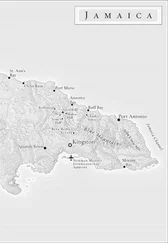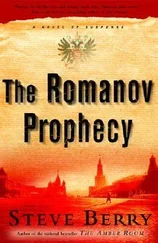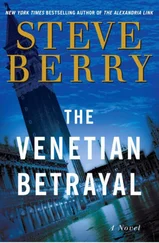“She’s on the phone.”
He’d been expecting the call, so he walked into an adjacent lounge, a warm room adorned with polished woods, soft fabrics, and split-straw marquetry papering the walls. He sat in a club chair and lifted the phone.
“Bonsoir , Graham,” Eliza Larocque said.
“Are you still in the air?” he asked in French.
“We are. But the flight has been a good one. Signor Mastroianni has agreed to sign the pact. He will deposit his earnest money immediately, so expect a transfer.”
“Your instincts proved correct.”
“He’ll make a fine addition. He and I have had a wonderful conversation.”
If nothing else, Eliza Larocque was persuasive. She’d appeared at his English estate and spent three days tantalizing him with the possibilities. He’d investigated and learned that she was descended from a long line of wealth, her Corsican ancestors first rebels then aristocracy who wisely fled the French Revolution-then smartly returned when the time was right. Economics was her passion. She held degrees from three European universities. She headed her family concerns with hands-on management, dominant in wireless communication, petrochemicals, and real estate. Forbes had estimated her wealth at nearly twenty billion. He’d always thought that figure high, but noticed that Larocque never corrected its quotation. She lived both in Paris and to the south, on a family estate in the Loire Valley, and had never married, which he’d thought odd, too. Her voiced passions were classical art and contemporary music. Strange, those contradictions.
And her flaw?
Too quick to violence.
She saw it as the means to almost every end.
Personally, he wasn’t opposed to its use-tonight had demonstrated the inherent need-but he tempered its application.
“How has your weekend been so far?” Larocque asked him.
“I’ve enjoyed a peaceful cruise on the Mediterranean. I love my boat. It’s a pleasure I so rarely savor.”
“Far too slow for me, Graham.”
They each loved their toys. Larocque cherished planes-he’d heard about her new Gulfstream.
“You’ll be at the meeting Monday?” she asked.
“We are cruising toward Marseille now. I’ll fly out from there.”
“And so I shall see you then.”
He hung up the phone.
He and Larocque had become quite the team. He’d joined her group four years ago, anteing up his twenty-million-euro initiation fee. Unfortunately, ever since, his financial portfolio had taken a massive beating, which had forced him to tap deep into his family reserves. His grandfather would have chastised him for taking such foolish risks. His father would have said, So what, take more . That dichotomy accounted, in many ways, for his present financial precariousness. Both men were long dead, yet he continued to try to please each.
When the Retrievers of Lost Antiquities had been exposed, it had taken all he could muster to keep Europol at bay. Luckily, proof had been scarce and his political connections strong. His private art cache had not been discovered, and he still maintained it. Unfortunately, that precious hoard could never figure into his bottom line.
Thankfully, he now controlled a stash of gold.
Problem solved.
At least for the foreseeable future.
He noticed the Corsican’s book -Napoleon, From the Tuileries to St. Helena- lying on the chair beside him. One of the stewards had brought it from the salon, along with the briefcase once again full of euros.
He lifted the book.
How did an unremarkable child, born to modest Corsican parents, rise to such greatness? At its height the French Empire comprised 130 départements , deployed over 600,000 troops, ruled 70,000,000 subjects, and maintained a formidable military presence in Germany, Italy, Spain, Prussia, and Austria. From those conquests Napoleon amassed the largest treasure hoard in human history. He gathered loot at unprecedented levels, from every nation he conquered. Precious metals, paintings, sculptures, jewels, regalia, tapestries, coins-anything and everything of value seized for the glory of France.
Much of it had been returned after Waterloo.
But not all.
And what remained had metamorphosed into legend.
He opened the book to a section he’d read a few days ago. Gustave had willingly surrendered his copy, upon a down payment on the promised one million euros. The book’s author, Louis Etienne Saint-Denis, had served as Napoleon’s valet from 1806 to 1821. He voluntarily went into exile with Napoleon, first on Elba, then St. Helena. He maintained Napoleon’s library and, since the emperor’s penmanship was atrocious, prepared clean copies of all dictation. Nearly every written account from St. Helena had been penned in his hand. Ashby had been drawn to Saint-Denis’ memoir. One chapter in particular had caught his attention. He again found the page.
His Majesty hated St. Helena, a British dot on the world map, west of Africa, hammered by wind and rain, ringed by steep cliffs. Napoleon’s thoughts upon seeing his island prison in 1815 remained his thoughts throughout. “Disgraceful. Not an attractive place. I would have done better to remain in Egypt.”
But in spite of the trials which Napoleon had to suffer, the memory of his power was always an agreeable dream. “I placed all of my glory,” he said, “in making the French the first people of the universe. All of my desire, all of my ambition, was that they should surpass the Persians, the Greeks, and the Romans, as much in arms as in the sciences and arts. France was already the most beautiful, the most fertile country. In a word, it was already worthy to command the world as was ancient Rome. I should have accomplished my end if marplots, conspirators, men of money, immoral men, had not raised up obstacle after obstacle and stopped me in my march. It was no small accomplishment to have succeeded in governing the principal part of Europe and to have subjected it to a unity of laws. Nations directed by a just, wise, enlightened government would, in time, have drawn in other nations, and all would have made one family. When once everything had been settled I should have established a government in which the people would have nothing to dread from arbitrary authority. Every man would have been a man and simply subject to the common law. There would be nothing privileged, only merit. But there are those who would not have liked that to be. Debt barons who thrive upon the greed and idiocy of others. My goal was always to rid France of debt. Their desire was to drive France deeper into the abyss. Never were loans meant to be employed to meet current expenditures, whether they be civil or military. One has only to consider what loans can lead to in order to realize their danger. I strove against them. Finance would never have possessed the power to embarrass the government since, if that had been the case, the bankers and not the leaders of government would have controlled. The hand that gives is above the hand that takes. Money has no motherland. Financiers are without patriotism and without decency. Their sole object is gain.”
He’d never realized Napoleon’s passionate convictions regarding money lending. Previous and later French monarchs easily succumbed to the lure of debt, which had only hastened their downfall. Napoleon resisted. Which, ironically, may have hastened his end as well.
One other item in the book had drawn his eye.
He thumbed through the brittle yellow pages and found the critical reference in the introduction, written in 1922, by a professor at the Sorbonne.
Saint-Denis died in 1856. He left to the city of Sens some of the articles which he had preserved in memory of his Emperor: two volumes of Fleury de Chaboulon with notes in Napoleon’s handwriting; two atlases in which Napoleon had made some notations in pencil; the folio volume of the campaigns of Italy; a copy of The Merovingian Kingdoms 450- 751 A.D.; personal relics; a coat with epaulettes; a cockade from a hat; a piece of the St. Helena coffin; and a bit of one of the willows which grew over the Emperor’s tomb. His final words were specific, “My daughters should always remember that the Emperor was my benefactor and, consequently, theirs. The greater part of what I possess I owe to his kindness.”
Читать дальше











